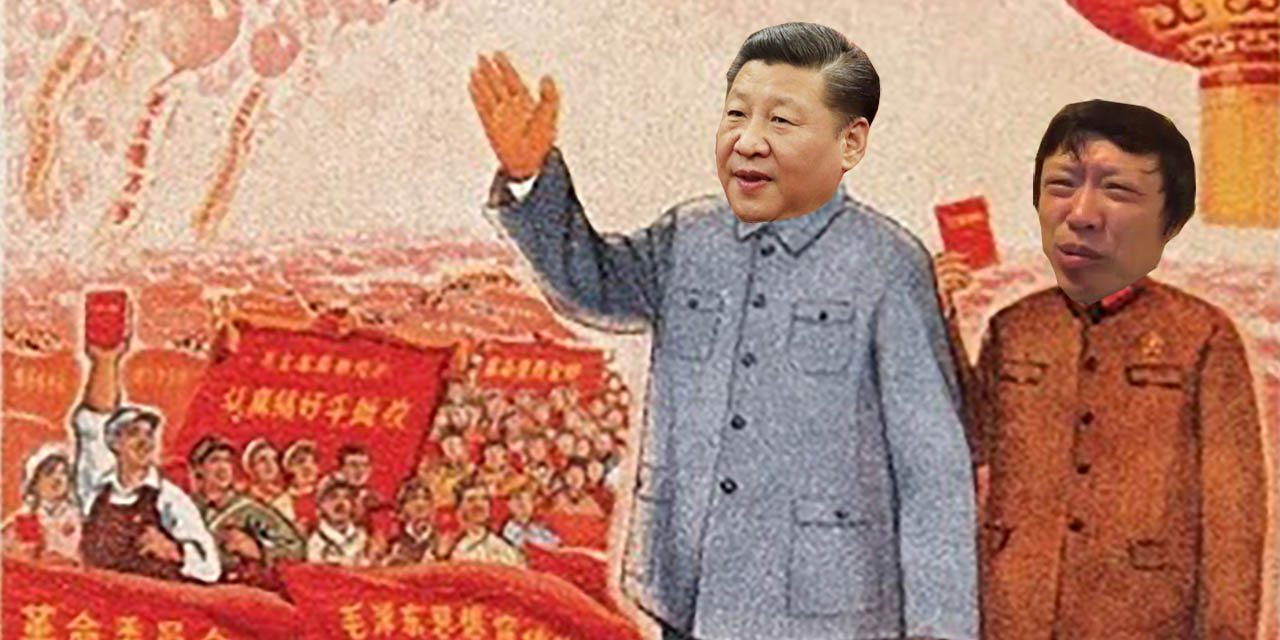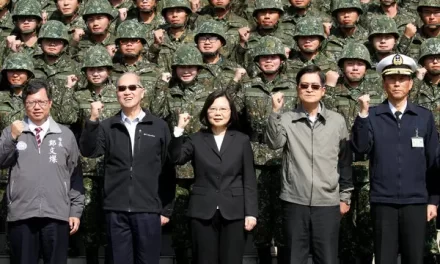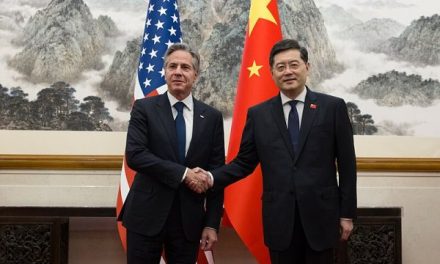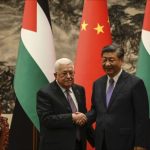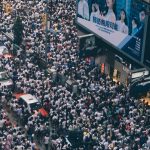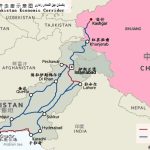By Guan Fengxiang
Editor’s note: The author is a retired professor in Beijing, and also someone who even now sees some value in the Marxism he studied when younger. Here he reports on a rumor currently making the rounds inside and outside China, that Xi Jinping was recently upbraided by retired party elders for his leading the country off the rails.
In recent weeks, in my blindness and ignorance I have had no interest in such boring news as “Oppose Japanese pollution!” and “high-level power struggles.” In addition to having tea with old friends, I have been reading behind closed doors and recalling the events of the Cultural Revolution.
One day recently, a student scaled the Great Firewall and forwarded a strange article to me. It was a masterpiece by senior Japanese media person Katsuji Nakazawa, published in Nikkei Asia on September 5. He said that not long ago, retired veterans of the Chinese Communist Party had a private gathering. Zeng Qinghong took the lead and Li Keqiang participated, expressing concern about the current situation. Finally, a consensus was reached and a “representative” was sent to Beidaihe to accuse Xi Jinping of mismanagement “in an unprecedented way.” Xi was full of complaints and blamed his series of predecessors, Deng Xiaoping, Jiang Zemin and HunJintao, saying, “You can’t entirely blame me.”
True or false? Reasons for believing each
A friend I was having tea with shook his head at this and said, “You are grasping at straws. Nowadays, the core is true to its word, and surrounded by eunuchs and courtiers. How can it give outsiders a chance to make irresponsible remarks? Given Xi’s strength, how can he tolerate big bosses who have stepped down from power gathering behind the scenes and making arrogant comments about the central government? Isn’t that asking for trouble?” Therefore, he believed that even if Nakazawa was not making it up (and given his qualifications, he would not be doing so), he was still credulous enough to believe the information what some factions deliberately fed him, using the method of “selling exports domestically” to show that they matter. He asked me for my opinion, and I thought about if for a long time. I didn’t say anything for the duration of the entire cup of tea.
After I stood up to say goodbye, I responded in a low voice: “My friend, I had the same view as you did when the 20th National Congress had just been held. But now, the situation is so dangerous. If the top leaders of the party and state, and people with even a little conscience would actually still remain silent and not even dare to make a sound, wouldn’t you feel it was even stranger?” The old friend nodded, then shook his head, looking confused. I went home and thought about it over and over. I felt that this was a big issue and related to the general direction of the transformation of the entire society. So I decided to write another article to talk about my new thinking or perspective. These are three ways of thinking about it:
First, the sense of crisis has increased significantly, to a degree without precedent. The awareness of crisis among the whole society has increased significantly. Except for a few clueless Maoist pinks who are still talking to themselves, most ordinary people and intellectual elites have a foreboding of danger. And the powerful bosses who know the inside story can see further and even if they only act in their own interests, they cannot remain indifferent.
Second, the incompetence of the new leadership team has been exposed. Although the 20th Congress was laden with farce, no one could stop the nonsense. People instead had a passive mentality of “let him do what he wishes.” Even when Hu Jintao was forced to leave the meeting and finally signaled to Li Keqiang as it happened, he felt the same way. There is no internal opposition, it’s all about foot soldiers for evil who do what they are told, so it’s time to act boldly! Unexpectedly, in the past year, there have been no bright spots in the political sphere, only bad results. Efforts to promote private enterprises, stabilize foreign investment, and boost domestic demand have had no real effect and the country’s foreign affairs and national defense have made a series of mistakes, which is a source of laughter. Facts have proven that the new team is indeed one of fools. It also eloquently proves that under our strange system, there is an iron law of degradation of authority and of talent selection that does not depend on human will.
Third, must people save the nation from extinction at the last moment? I am just borrowing an old saying here, which obviously does not literally mean “save the country from destruction” or “insure the nation’s survival.” Rather, here the meaning is “save the party and the country from destruction” and “save our privileges.” Why is it “the last moment”? Because the party-state bosses know that internal and external troubles are occurring at the same time. The internal troubles are serious illnesses that are difficult to treat and are terminal. The “foreign troubles” are international encirclement and suppression, unprecedented outside pressure, limits on trade and technology, and military confrontation. There is no possibility of relief, and the chances of turning the crisis around are almost zero. There is a power struggle at the top and rumors are spreading. Once the situation gets out of control, chaos will be imminent and it may be the end of the party and the country. If you don’t stand up and speak now, I’m afraid you will be buried as well, and there will be no chance to speak in the future.
The above three points make me feel that Nakazawa’s article may not be groundless. As for the “meeting in the suburbs of Beijing.” “sending representatives,” “unprecedented methods,” etc., these are probably just flourishes. Given the power they retain from the past, it should not be difficult for the big bosses to have informal dinners and tea in private. It is entirely possible to reach a consensus and then send someone to speak out. Of course, we don’t know the inside story, so it’s hard to tell whether it’s true or not. It needs to be confirmed. As for Zeng Qinghong, it is impossible for him to be the one to have come forward. He is just a “Shaoxing master” [a reference to common people during the Ming and Qing who would advise regional leaders on specific issues]. How can he have the courage and talent to take charge of his own affairs? This is only half true; the other half is that actually now “In the land of the blind, the one-eyed man is king.” In terms of IQ and ability, Zeng was once absolutely superior to Jiang Zemin, Hu Jintao and Xi Jinping. What is more, he has many years of experience in running the intelligence network. More important, he is the “benefactor” who schemed to push Xi to short-term power. According to party-state practice, he is more or less qualified to “listen to the government” and “discuss the government.” For him to come forward to represent the old men’s “unreasonable opinions” is not only in line with the circumstances, it is also very rational. Is there an internal order banning “acting without speaking first”? This makes no sense!
Three feet of ice does not freeze in one day
As for Xi Jinping being dissatisfied with criticism and saying, “I cannot be blamed entirely,” I think it is logical and normal. If I were to put myself in his shoes, I would say the same thing. Of course, I also do not deny that he must bear the main responsibility for the current predicament, because after him being in power for ten years, everything has failed, and domestic and foreign affairs have been dismal. He also broke the rules at the 20th National Congress and refused to step down. But it is unjustifiable to say that neither the former nor the current members of the Standing Committee are responsible. In this regard, I have four points here:
First, the consequences of refusing to vote: No one would believe that Xi’s rise to the throne was due to his personal skill in political combat. It is obviously the result of a black-box operation and a balancing act. Just like when Jiang and Hu came to power, I was surprised. The only difference is that when they were in power, while it was not ideal, the “benefactors” could barely accept or at least tolerate it. After all, the situation at that time was relatively stable. But this restless, mercurial new figure made them rue the day. But since you have chosen the wrong person, you should bear the consequences. There are problems with the selection method and its incentives. Not only does it not allow for universal suffrage, nor for intra-party democracy, it also does not examine the level of culture, the ideological cognition and the personal achievements of any “Crown Prince.” The system only looks at “whether he is obedient” on the surface. The leaders who chose him believed only in their own acuity and did not believe in the wisdom of the masses. Under autocracy, rejection of true talent and the decay of authority is an iron law of politics. Leaders do not believe in evil, and thus deserve to be punished! In short, the big bosses are to blame for this problem of choosing the wrong person.
Second, the consequences of not being allowed to debate: the last reform [after Mao’s death] started from the emancipation of the mind, from humanism to the discussion of standards of truth, including the great debate between the two Hus (Hu Jiwei and Hu Qiaomu) around “party spirit and human nature.” As a result of ideological emancipation, we had to first vindicate the “April 5th Movement” and pave the way for Deng Xiaoping’s comeback. As the discussion went deeper and touched on the fundamental issue of capitalism and socialism, it could have been clearly stated that “capitalism” is a pseudo-issue, and the heart of the matter is the market and democracy versus monopoly and autocracy. Or, should we return to common sense or stick to the original Marxist-Leninist dogma? If we had broken through the fog and supported Hu (Yaobang) and Zhao (Ziyang)’s reform ideas, we would never have reached the dead end we are in today.
As a result, Deng Xiaoping and Chen Yun announced the brakes, stopped arguing, and switched to pragmatism to “cross the river by feeling for stones” [a contemporary saying meaning continually improving reform one step at a time through trial and error]. But Deng and Chen planted the seeds of disaster, and Jiang and Hu continued to rule using the old system. Although three generations of emperors who learned from the tutor [and longtime chief CCP ideologist] Wang Huning’s concoction of the “Three Represents” and the “Scientific Outlook on Development” and boasted of theoretical innovation, what was the use? What do these sayings represent? Where is the science? What is left now is the so-called “China Dream,” which relies on empty dreams to govern the country, via countless regulations and clichés, and entirely lacks innovation. Is it Xi’s fault that the isolation has become so severe? How can someone who has difficulty even reading from a manuscript be so capable?
Third, the negative consequences of halfhearted reform: merely economic changes, not involving politics, are regarded as “one-leg” reform, or “halfway reform”, but are also packaged as “latecomer advantage” and “passing the leaders on the corners.” Make use of the ready-made experience of developed countries, including management and research and development, and even through buying or stealing it, just use it. This so-called latecomer advantage does have certain results. By relying on the sacrifice of human rights, natural resources and the environment, it can maintain an extraordinary rate of growth for a short period of time. But you can’t exaggerate, let alone get addicted, and end up falling into the “latecomer disadvantage” (or latecomer curse), warned of by Dr. Yang Xiaokai. They insist on “Chinese system, Western tools” [here the author evokes a saying from early reform attempts after China’s forced opening in 1842] and “concentrate our efforts on doing big things,” and in the slogans “passing on the corners” and “the East rises, the West declines” misunderstood the opportunity. As a result, we fully confront the West and have truly fallen into the trap of the “latecomer disadvantage,” and must face the danger of ourselves “being passed on the corner”. The main person responsible for the misinformation should be the imperial academic circles headed by Justin Yifu Lin [a highly influential Western-educated economist], and Xi Jinping, who does not understand economics, cannot be entirely blamed.
Fourth, the negative consequences of rejecting “universalism”: I wrote a short article “Elaborating on the Roots of Exploitation,” pointing out that the so-called “socialist market economy” is a nondescript oddity, because the market is the market, with capital playing the leading role. We need a supporting system and culture. It has nothing to do with ideology: as Deng Xiaoping said. “Capitalism can be used, and socialism can also be used.” (see https://www.chinainperspective.com/default.php?id =75753). If this issue was relatively vague forty years ago, then after decades of friction and conflicts (including between China and foreign countries, between the government and the opposition, between labor and capital, between public and private, between government and the people, etc.), today it can be seen more clearly.
Perhaps the top leadership realized that Deng’s “market tools theory” was no longer effective, so they changed their tactics and proposed a “market economy with different cultural characteristics.” I only emphasize that national markets located at different levels of division of labor will of course have different cultural and technical content in the products and services they trade, but this cannot deny the necessary elements or prerequisites for a market economy, which are what I call the “five indispensables”: private property rights, markets for productive factors, courts that dispense justice, democratically elected government, and freedom of speech. According to the analysis of markets in Marx’s Capital, the five elements are self-evident, otherwise it would not be a market economy. But now, not all countries with buying and selling have these five elements, and some may be in name only. For example, our official media will definitely say that it is not that we lack a market economy, but that it has “Chinese characteristics,” which is to affirm in the abstract but to deny in the concrete.
As for the central Marxist claim that capital exploits labor, I also analyzed this in “Elaborating on the Roots of Exploitation”. According to my thinking, combined with the “Capitalist Socialism” ideal proposed by Sun Dawu, only monopoly privileges are the root of exploitation, and capital subject to legal constraints on its operation from the institutional level not only does not lead to exploitation, it also has the function of limiting polarization. I pointed out three specific reasons: first, the theory of infinite surplus value; second, the ethics of labor compensation; third, the theory of people’s participation in the division of the surplus. The specific details are not repeated here.
Due to accelerated globalization, a democratic market economy with all five features has become a universal value that applies to all countries. When Zhu Rongji signed the WTO accession agreement, he also promised that China would gradually implement it. This once gave the West illusions, but in the end its hopes were dashed. Instead of changing, China wants to change the world order according to its own standards and make the contradictions irreconcilable. In short, breaking promises and fooling the West is the consensus of the top leaders of the party and state. This has always been the case, and the responsibility cannot be solely borne by one person. Deng Xiaoping, Li Peng Jiang Zemin, Zhu Rongji, Hu Jintao, Wen Jiabao, Xi Jinping and Li Keqiang are all responsible; if you go further up, it can be traced back to Mao Zedong and Zhou Enlai. I still remember how we were trained, created lines to be repeated, rehearsed day and night, and told collective lies to fool foreigners when Nixon visited China. In short, everyone is involved in this bad custom of not following the rules, not being trustworthy, and engaging in fraud, and no one can escape.
How do we escape? A call for new thinking
There are still those who say that “To solve China’s problems is to solve the problem of one specific person. If Xi Jinping is replaced, China can get out of its predicament.” I cannot agree with this. How can it be that simple? This is not simply a matter of replacing people, but more of a matter of replacement of a way of thinking. If there is no fundamental change in our guiding ideology and governance strategy, even if a god were in charge, it would not be much better. Not to mention, how are these new leaders created, who recommends them, and what are the selection criteria? Let’s just ask where are the party’s hearts and minds (assuming they are consistent) today? What do they want? Please, can anyone explain this clearly?
What is more, I support the view of Professor Qin Hui. While it is wrong to deify and rigidify Marx, it is also wrong to completely deny him, especially his thoughts on democratic socialism. Having taught public courses on Marxism-Leninism all my life, I certainly have limits in my thinking, but I also have a clear head. During the Tiananmen Massacre, the Chinese Academy of Social Sciences was the hardest-hit arena. Director Su Shaozhi, Marxism-Leninism, Director Yan Jiaqi, Political Science, Director of Literature Liu Zaifu and others (all great scholars whom I admire) were all expelled and exiled to the United States. But they have not given up their early beliefs, because in the final analysis, Marx’s theory and methods are not inconsistent with a market economy and democratic politics. Otherwise, it would not have such great influence in Europe. Socialist parties and social-democratic parties in many Western countries, whether in power or in opposition, all agree with Marxist doctrine, not to mention those communists who still exist legally.
Like them, I believe that Marx’s theory is a living one, in development and subject to innovation, rather than a rigid dogma. For example, the highlight of “Capital” is that it reveals that wealth comes from human labor; the secret of its growth is inseparable from market exchange and free competition. “Capital” certainly has flaws and loopholes. The theory of surplus-value expropriation (the theory of exploitation), the theory of working class poverty, the utopian vision of future public ownership and distribution according to need, etc., all lack a scientific basis and are not consistent with history and reality. Moreover, the theory once led to the post-war confrontation and cold war between the two camps. To this day, it continues to block the smooth development of marketization and democratization in China, Vietnam, North Korea, Cuba and other places. Regarding the fallacies of Marxism-Leninism, we should question them when they should be questioned and deny them when they should be denied. If Western Marxists can do it, there is no reason why we cannot.
In addition, Marx provided no in-depth analysis of the social conditions of the market economy, because in his view, those were self-evident prerequisites. It was even more impossible for him to foresee that in the more than 100 years after he wrote, not only did proletarian dictatorship come true yet fail in one place after another, but a strange historical problem also appeared: the communist regimes that once eliminated private ownership and the market economy all went back — trying to rebuild the market, advocating reform, and arguing endlessly about what a market economy is and the supporting social conditions.
Some people have delineated specific contents of the market economy, including the rule of law, freedom, democracy, equality, decentralization, autonomy, clean government, the market, parliament, civil servants, etc. But I think this is too complicated. The most fundamental characteristics are what I call the “five pills” (private property rights, factor market, judicial justice, democratically elected government, and freedom of speech). As long as the above five elements are present and the goods produced are genuine, then the market will not find it difficult to develop a more suitable soil and climate. As for the realization of these five elements, is it achieved through smooth sailing and peaceful reform? Or a revolutionary mutation that generates bloody turmoil? It all depends on the cognitive state of the government and the public, the maturity of subjective and objective conditions, and the interaction process of internal and external factors. Of course, it is also inseparable from the elements of chance and luck. This topic is too big, and this article can only touch on it, making it difficult to discuss here.
Of course, if we dig deeper, is there a more fundamental reason behind the “five pills”? Of course there is. For example, some people have concluded that the reason why Britain took the lead in establishing a capitalist market economy is because of the “four roots”: Artifacts come from systems, systems come from ideas, ideas come from culture, and culture comes from beliefs. In this view, in the end, it comes down to Protestantism. The originator of this inference should be considered the German sociologist Max Weber, especially his famous book “The Protestant Ethic and the Spirit of Capitalism.” Judging from the current world situation, countries with relatively well-functioning market economies and democratic politics do indeed have Protestantism as their main belief. As for why, the book explains it in detail, so I won’t go into details here.
However, while I think that although the faith issue is important, especially in the early stages of capitalism, it should not be overstated. Even nations that believe in other religions have to move in the general direction of a market economy and democratic politics, because facts have proven that it is what people want, is a universal value, and is applicable to all countries. No matter what the national culture or religious tradition, as long as you believe in market competition and pursue economic prosperity and social harmony, you have to move closer to universal values. This has been the case in historical experience, and future developments will be no exception. If most of our social elites and ordinary people have this consensus, then China’s social transformation will be relatively smooth. Otherwise, it may be inevitable that it falls into another historical cycle of chaos.
This is the “big change unseen in a century” [here ironically evoking a remark of Xi Jinping that world trends indicate the replacement of the West by the rest, especially China, as the driver of world history] that we are really facing. Are you ready?
Written in September 13, 2023, in a Beijing apartment, on the anniversary of the death of Deputy Commander Lin Biao.
This piece was translated from Yibao Chinese. If republished, please be sure to add the source and link https://www.yibao.net/2023/09/23/what-if-it-isnt-…i-jinpings-fault/ before the text when reposting.
The views of the author do not necessarily represent those of this journal.

